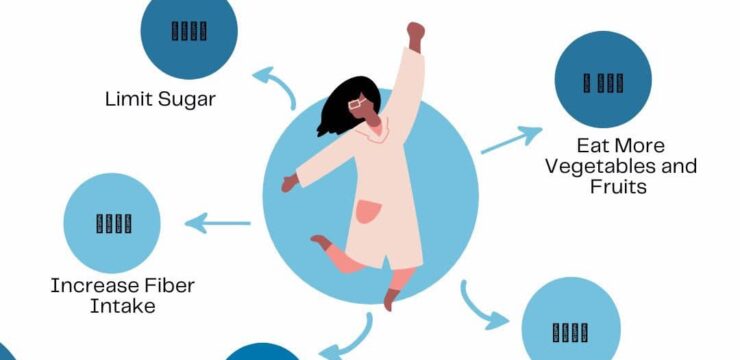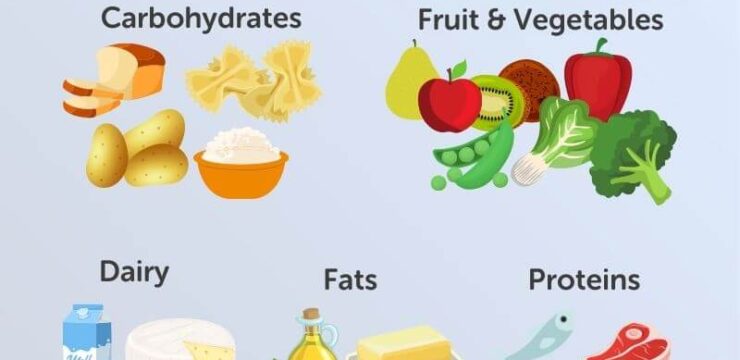Healthy eating is often discussed in terms of weight management or disease prevention, but its influence goes far beyond the physical body. What we choose to eat can have a profound effect on our emotional well-being and overall outlook on life. When approached mindfully, healthy eating habits can become a powerful tool for boosting positivity and fostering a more optimistic mindset.
The connection between food and mood is not just anecdotal. Scientific research increasingly supports the idea that nutrition influences brain function. For instance, diets rich in fruits, vegetables, whole grains, and lean proteins provide the body with essential nutrients that support the production of neurotransmitters like serotonin and dopamine, which play key roles in mood regulation. Conversely, a diet heavy in processed foods, added sugars, and unhealthy fats can contribute to energy crashes, irritability, and even symptoms of anxiety and depression. By consciously choosing nourishing foods, we are essentially giving our brain the fuel it needs to operate at its best.
One of the simplest ways to incorporate positivity through healthy eating is to start the day with a balanced breakfast. A morning meal that combines complex carbohydrates, proteins, and healthy fats provides sustained energy and supports stable blood sugar levels, which can prevent mood swings. Options such as oatmeal with nuts and berries, a smoothie with leafy greens and fruit, or whole-grain toast topped with avocado and eggs are excellent ways to set a positive tone for the day. Eating breakfast mindfully, rather than rushing through it, can also create a sense of calm and intention, which reinforces an optimistic outlook.
Hydration is another often overlooked factor in maintaining positivity. Dehydration can lead to fatigue, reduced concentration, and irritability, all of which can undermine a positive mindset. Drinking adequate water throughout the day helps the body and mind function optimally. Infusing water with slices of fruit or herbs can make hydration more enjoyable and add subtle flavors that elevate the experience. Keeping a reusable water bottle nearby can serve as a gentle reminder to stay hydrated and care for oneself, which itself reinforces positive self-regard.
Healthy eating is not solely about what we put on our plate but also how we approach meals. Mindful eating, the practice of paying full attention to the experience of eating, can enhance enjoyment and reduce stress. By focusing on flavors, textures, and aromas, we cultivate a sense of presence that naturally supports positive emotions. Taking the time to eat without distractions like screens or work can transform meals into moments of self-care. This approach encourages gratitude for the food we have and an appreciation of the effort that went into preparing it, both of which are powerful contributors to a positive mindset.
Planning meals in advance is another strategy that supports both health and positivity. When meals are thoughtfully prepared, there is less reliance on convenience foods, which often contain unhealthy additives. Meal planning can also reduce the stress of last-minute decisions about what to eat. Creating a weekly menu that emphasizes colorful vegetables, wholesome grains, and lean proteins can help ensure balanced nutrition while also instilling a sense of control and accomplishment. The process of planning and preparing meals can itself be satisfying, as it allows for creativity in the kitchen and the joy of anticipating delicious, nourishing dishes.
Social connections also play a role in reinforcing positivity through healthy eating. Sharing meals with family, friends, or colleagues encourages a sense of belonging and fosters emotional well-being. Preparing and enjoying healthy meals together can be an enjoyable ritual that strengthens relationships. Engaging in conversations around the table and practicing gratitude for the meal can amplify positive feelings. Even virtual connections, such as cooking the same recipe with a distant friend, can provide a shared sense of purpose and connection, further enhancing overall positivity.
It is important to remember that boosting positivity with healthy eating does not mean striving for perfection or restricting oneself excessively. A balanced approach includes flexibility and the ability to enjoy treats without guilt. Allowing occasional indulgences supports mental well-being and helps prevent feelings of deprivation, which can lead to negative emotions and unhealthy eating patterns. Viewing healthy eating as a way to nourish and celebrate the body, rather than punish it, creates a more sustainable and positive relationship with food.
Another key element is listening to the body’s signals. Paying attention to hunger and fullness cues helps establish a natural rhythm of eating that respects the body’s needs. Eating when truly hungry and stopping when comfortably satisfied promotes self-awareness and self-compassion, both of which are essential for a positive mindset. Over time, this attunement to the body’s signals can reduce mindless snacking and emotional eating, replacing them with more conscious, health-promoting habits.
Incorporating a variety of foods into the diet is also crucial for both physical health and emotional well-being. A colorful plate that includes different vegetables, fruits, grains, and proteins not only ensures a wide range of nutrients but also engages the senses and makes meals more enjoyable. Trying new foods and recipes can introduce a sense of adventure and curiosity into daily routines, contributing to a more vibrant and positive outlook. This variety also helps prevent monotony, which can lead to boredom or dissatisfaction with healthy eating.
Finally, setting realistic and attainable goals around healthy eating can support a sense of achievement and optimism. Rather than making sweeping changes overnight, focusing on small, manageable adjustments increases the likelihood of long-term success. Celebrating progress, no matter how minor, reinforces positive behaviors and encourages continued commitment to nourishing habits. Over time, these small victories compound, fostering a sense of empowerment and reinforcing the connection between healthy eating and emotional well-being.
In conclusion, healthy eating is a powerful avenue for boosting positivity and cultivating a brighter, more optimistic mindset. From choosing nutrient-rich foods to practicing mindful eating, staying hydrated, planning meals, and embracing variety, every small step contributes to emotional resilience and joy. Sharing meals with others, listening to the body’s signals, and maintaining a flexible approach further enhance the relationship between nutrition and mood. By viewing food as a source of nourishment, enjoyment, and connection, we can transform everyday eating into a practice that not only sustains the body but also uplifts the mind and spirit.






